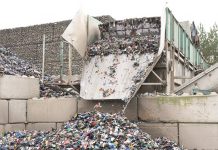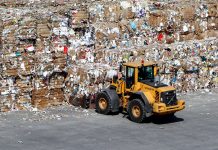The closure of plastic recycling plants in Europe is accelerating dramatically. More than one million tons of recycling capacity, around 25 percent of total capacity, has already been lost in the past three years and more closures are expected. Hundreds of green jobs are already affected and thousands of jobs are at risk.
To stop this disastrous trend, GreenDot is calling for the immediate implementation of eco-modulation in European Extended Producer Responsibility (EPR) systems.
35 years ago, Der Grüne Punkt introduced the first dual system of EPR to reduce pollution and promote recycling. This has contributed significantly to the development of recycling capacities and higher recycling rates. However, the link between the prices of fossil-based and recycled plastics, as well as a lack of incentives for brands to use recycled materials, have slowed down the packaging-to-packaging cycle so far.
The EU Packaging and Packaging Waste Regulation (PPWR) sets binding recycling rates for plastic packaging from 2030. Until then, however, there is a risk of a massive loss of capacity and investment, as many brand owners have already abandoned their voluntary commitments to use recycled materials. Eco-modulation with a bonus on using recyclates is an immediate solution.
Eco-modulation with a bonus for the use of recycled plastics as an immediate solution
Eco-modulation creates the necessary financial incentive for brand owners to incorporate recycled plastics into their packaging. It rewards sustainable behaviour and makes investing in recycling attractive again. France and the Netherlands have already taken this step and are demonstrating that the solution is available and effective. “If we don’t act now, Europe will lose even more recycling capacity by 2030 and become increasingly dependent on imports,” warns Laurent Auguste, CEO of GreenDot. “Eco-modulation is the bridge between today and tomorrow’s binding targets. Germany and other member states must follow suit as a matter of urgency.”
Strategic importance for Europe
Developing a functioning circular economy for plastics is not only necessary from an ecological and economic perspective, but also a question of Europe’s strategic independence. Only by expanding and securing its own recycling capacities can the EU strengthen its industry and secure green jobs.
Call to politicians and industry
GreenDot is calling on national governments and EU institutions to introduce eco-modulation in the short term and to prioritize closed systems within the EU. This closing the circle for the EU region is the only way to prevent the impending collapse of the plastics recycling industry and pave the way for a truly EU circular economy.
Source: GreenDot group





